-
How Dieting Can Cause Bad Breath

Over the past ten years, there has been a lot of debate about low-carb diets such as the Keto and Atkins diets. Most of this discussion is about how they work, and whether they help people keep weight off for a long period. An overlooked aspect of these diets is their tendency to cause bad breath, also known as halitosis. Some people have taken to calling this phenomenon “keto breath.” How does this happen?
One of your body’s main sources of energy is glucose. Glucose is formed when your digestive system breaks down carbohydrates from complex sugars into simple glucose molecules. When you eat fewer carbohydrates, your body has to find other fuel sources (primarily fat) for energy. This metabolic state is known as ketosis.
When your body breaks down fatty acids, it creates a byproduct known as ketone bodies, or ketones. They come in three common forms: acetoacetate, beta-hydroxybutyrate, and acetone. These are regularly removed from your body when you exhale or urinate.
If you consume a low-carb diet, your body relies more on fatty acids for energy because you aren’t consuming as many carbohydrates. As you use up more fatty acids, more ketones are released as a byproduct of the metabolic process at work.
This surplus of ketones in your body can contribute to bad breath. But the ketones you exhale have very particular odors, which are mostly not like what you experience with normal diet bad breath.
There’s another bad breath factor with low-carb diets. The sudden transition from carbs to proteins changes how the body metabolizes food. The breakdown of protein creates ammonia. A sudden increase in dietary protein will only exacerbate this effect, increasing the amount of ammonia in your urine as well as your stomach gasses. Since it takes a lot of water to remove ammonia from your system, insufficient hydration can degrade your breath as this excess ammonia builds up in your body.
If low-carb diets have helped you, don’t despair. Some people on low-carb diets don’t develop bad breath. With others, it’s a temporary effect of the rapid diet change. And there are ways to mitigate the effect:
- Drink lots of water
- Use mints and/or gum to mask odors
- Brush your teeth at least twice a day
- Floss daily
- Transition slowly into your new diet and see how these changes affect you
If you’re experiencing halitosis, or if you just need the perfect place to get your teeth cleaned or fixed, choose the practice that was voted best dentist in NYC! At Park 56 Dental Group, we offer pediatric, prosthodontics, endodontics, oral surgery, Invisalign®, emergency, and sedation dentistry, all at the highest level of treatment. We serve the Midtown, Central Park, Upper East Side, Park Avenue, and all surrounding Manhattan and New York areas, with a patient-centered practice that has hours to fit your schedule. Schedule your complimentary consultation today by contacting us online or calling us at (646) 679-3989.
-
How to Prevent Plaque
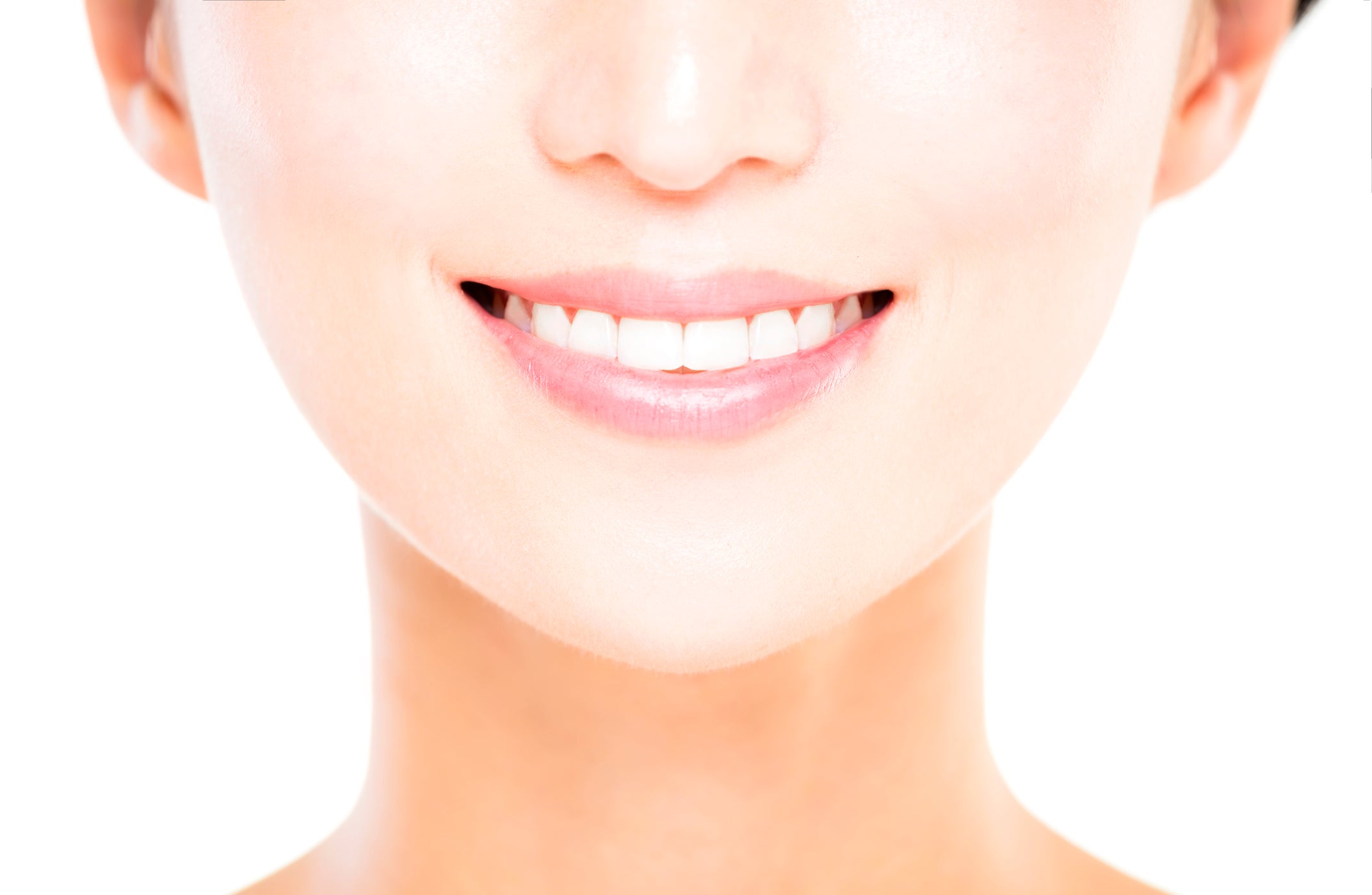
Everyone knows that if we don’t take care of our teeth we can get cavities. One cause of cavities is the buildup of plaque, which can also cause gum disease. Here’s an overview of what plaque is and how we can prevent it.
Everyone has dental plaque to some extent. Plaque causes a slight fuzziness on your teeth that you can feel with your tongue. It’s a sticky film of bacteria that is constantly developing on the surface of your teeth. The bacteria in plaque produce acids after you eat or drink. These acids can destroy your tooth enamel, leading to cavities and also gingivitis aka gum disease.
Plaque can also form under your gums and on your tooth roots. They can break down the jaw bones that support your teeth. If left untreated, plaque can harden into tartar, which is harder to remove. Proper dental hygiene habits, most importantly daily brushing and flossing, gets rid of a lot of this plaque. If you don’t like using normal dental floss there are options for you, including dental picks, pre-threaded flossers, brushes that fit between your teeth, water flossers or wooden plaque removers. Mouthwash is useful for loosening plaque so you can brush it off better, or spit or rinse it out of your mouth. But be careful to not get a kind that will dry your mouth out, because that actually makes your mouth more vulnerable to plaque formation.
Although we all get plaque, you may be more susceptible to plaque formation if you:
- Smoke
- Have dry mouth due to medical conditions or medications
- Have a history of head or neck radiation
Your diet is also an important factor for plaque formation. Plaque can form quickly when the bacteria in your mouth mixes with sugary or starchy foods such as soft drinks, milk, juice, fruit, pasta or bread. These bacteria release acids that break down carbohydrates in food and drinks, so they do serve a useful function in that regard. Plaque is clearly a downside. Many dentists will tell you that you can eat or drink pretty much whatever you like, as long as it’s in moderation. Whenever possible, drink water or brush your teeth right after consuming these problematic foods or drinks, to get that dangerous stuff off your teeth before they can help form plaque.
Regular dental cleanings are important too, because there are spaces that are hard for you to clean on your own. Dentists and dental hygienists have special tools to find and remove plaque.
If you’re looking for the perfect place to get your teeth cleaned or fixed, choose the practice that was voted best dentist in NYC! At Park 56 Dental Group, we offer pediatric, prosthodontics, endodontics, oral surgery, Invisalign®, emergency, and sedation dentistry, all at the highest level of treatment. We serve the Midtown, Central Park, Upper East Side, Park Avenue, and all surrounding Manhattan and New York areas, with a patient-centered practice that has hours to fit your schedule. Schedule your complimentary consultation today by contacting us online or calling us at (646) 679-3989.
-
How Root Canals Can Improve Your Smile and Dental Health

Have you ever heard a character in a movie or TV show say “I’d rather have a root canal?” That’s a reference to a dental procedure that used to be quite painful and complicated but, due to medical advancements, no longer has to be. The weird thing is, most people don’t even understand what the procedure is, or how much it can improve your smile and your dental health. If you’ve ever wondered about this topic, we’re here with the details.
Before the root canal procedure was invented, a tooth with a diseased nerve had to be taken out. Today it can often be saved with a fairly simple procedure involving one to three office visits, and with minimal downtime. And in contrast to old methods, it can be done virtually painlessly.
After a tooth has emerged through the gums, the only real function of the root is to detect heat or cold. When a tooth develops a crack or a deep cavity, germs can enter the pulp tissue and cause an infection inside the tooth. If this is left untreated, an abscess may form, and if the infected tissue is not removed, pain and swelling can result. This can also injure your jawbones and cause other health issues.
Teeth with infected roots aren’t always painful, but signs you may need a root canal include severe toothaches, pain when chewing or applying pressure, prolonged sensitivity or pain in response to hot or cold temperatures, a dark discoloration of the tooth, and swelling or tenderness of the adjacent gums. If you experience any of these symptoms, contact your dentist.
During a root canal procedure, your dentist or endodontist (a dentist who specializes in dental nerves) removes the affected tissue. Then the interior of the tooth is cleaned and sealed. Finally, the tooth is filled in with a dental composite. If your tooth has extensive decay, your dentist may want to place an artificial crown on your tooth to protect it from breakage. If you take good care of your teeth with regular brushing, flossing, and dental checkups, your restored tooth can last a lifetime.
If you think your teeth may have damage that requires a root canal procedure, choose the practice that was voted best dentist in NYC! At Park 56 Dental Group, we offer pediatric, prosthodontics, endodontics, oral surgery, Invisalign®, emergency, and sedation dentistry, all at the highest level of treatment. We serve the Midtown, Central Park, Upper East Side, Park Avenue, and all surrounding Manhattan and New York areas, with a patient-centered practice that has hours to fit your schedule. Schedule your complimentary consultation today by contacting us online or calling us at (646) 679-3989.
-
How Oral Piercings Can Affect Your Dental Health
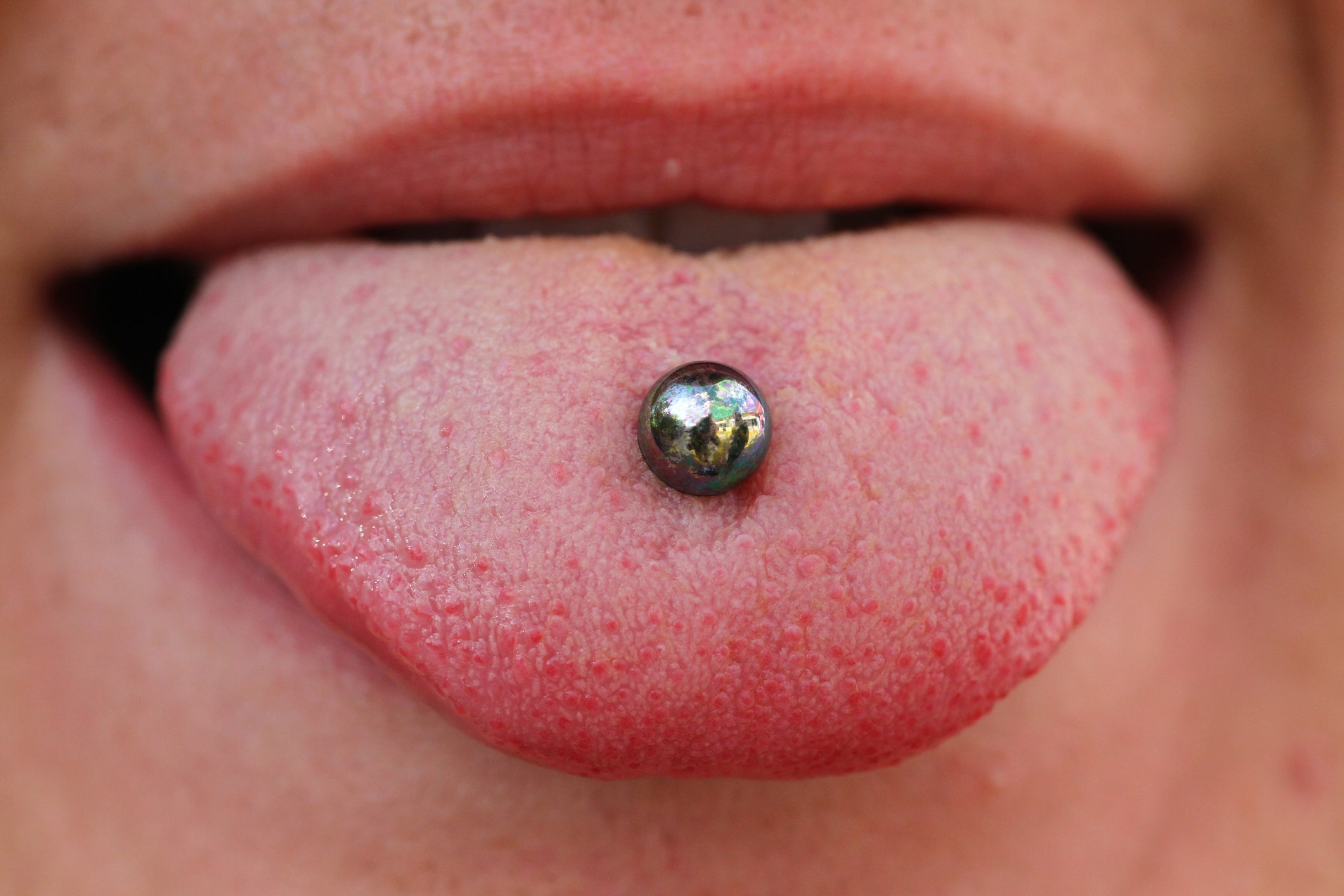
Piercings are growing ever more popular, and many people choose to express their individuality with an oral piercing. Unfortunately, cheek, tongue, and lip piercings often come with complications that can have an impact on your dental health. Before you get an oral piercing, make sure you know the risks.
Any piercing can cause an allergic reaction. You might experience pain and swelling after the procedure, or develop a skin infection that causes redness and pain or even scarring. When jewelry is accidentally ripped out, it can cause tearing and trauma, and piercings come with a risk of bloodborne diseases like Hepatitis B, Hepatitis C, and HIV. While those complications apply to all piercings, though, there are some problems that specifically occur with oral piercings. According to the American Dental Association, complications that can result from oral piercings include:
- Chipped or cracked teeth or a swollen tongue: The piercing can bump against your teeth while you talk or eat. You might even find that you sometimes bite it. When this happens, the piercing can injure your gums or crack or scratch your teeth. Your teeth may become sensitive, or you might damage your fillings. In addition, jewelry in your mouth can accumulate plaque, leading to tooth decay and cavities.
- Halitosis: It’s hard to properly clean your mouth when there’s jewelry covering part of your oral tissue. This leads to plaque bacteria and food debris building up in your mouth and causing bad breath.
- Bacterial infections: Your mouth is already a welcoming place for bacteria, because it’s so moist. Add in an incision and jewelry, and the bacteria trapped around your piercing can lead to infection, with symptoms of redness, swelling, pain, and a foul odor.
- Increased saliva: Usually, you want a good flow of saliva to wash out your mouth and prevent tooth decay. However, the excessive saliva flow that can be caused by an oral piercing can lead to the development of tartar, calcified plaque. Tartar hardens on teeth and under gums, and removing it requires a professional dental cleaning.
- Gum issues: Metal rubbing against the gums when you’re chewing, speaking, or just moving the piercing can cause gums to recede, which sometimes requires surgical correction. Piercings also raise the risk of gum disease, which can negatively impact your health and lead to tooth loss.
- Problems with dental care: Jewelry in your mouth makes it harder for your dental team to care for your oral health. It can even interfere with x rays and other diagnostic tools.
- Tissue trauma: Sometimes piercing jewelry becomes infected and must be surgically removed. You can also form scar tissue that may become large and require surgical removal.
- Changes in speech: Oral piercings can cause you to speak differently and impede your normal chewing.
- Obstructed airway: If the piercing becomes infected, you may experience breathing problems. Worse, if a piercing dislodges when you’re sleeping, speaking, or chewing, it can become lodged in the back of the throat, causing choking or airway obstruction.
- Nerve damage: After a piercing, your tongue may feel numb because of temporary nerve damage. Sometimes, though, this damage becomes permanent. This can affect your sense of taste and the movement of your mouth.
You might not realize it, but these complications are surprisingly common. While they don’t happen to everyone with oral piercings, they happen frequently enough and cause enough serious damage to be of concern. You can reduce your risk of complications, however, by being vigilant about caring for your mouth. Brush twice a day, floss, and use an alcohol-free mouthwash. Don’t play with your jewelry, stay vigilant for signs of infection, and periodically check to make sure it’s tightly secured.
If you’re looking for the perfect dentist, choose the practice that was voted best dentist in NYC! At Park 56 Dental Group, we offer pediatric, prosthodontics, endodontics, oral surgery, Invisalign®, emergency, and sedation dentistry, all at the highest level of treatment. We serve the Midtown, Central Park, Upper East Side, Park Avenue, and all surrounding Manhattan and New York areas, with a patient-centered practice that has hours to fit your schedule. Schedule your complimentary consultation today by contacting us online or calling us at (212) 826-2322.
-
How to Avoid Wearing Dentures in the Future

Growing older means facing a variety of challenges. Some of the difficulties that come along with aging are inevitable, but wearing dentures is not one of those things. There are steps you can take to be proactive with your dental care so that you won’t have to wear dentures in the future.
- First, brush your teeth. It may seem to simple and obvious to need to be stated, but many people to not properly clean their teeth. Did you know that over 20 million people in the United States are missing all of their natural teeth? That’s a lot of people who need dentures. Some of that tooth loss stems from poor brushing habits, because one in four adults in this country doesn’t brush twice daily. Lack of brushing leads to periodontal disease, which the National Institute of Dental and Craniofacial Research cites as the most common cause of tooth loss among adults. Brush your teeth twice a day, with a good toothbrush and fluoride toothpaste certified by the ADA.
- While you’re at it, floss! Flossing is important, because when tiny food particles are allowed to remain between your gums and teeth, they harden and turn into tartar. Tartar is often the cause of gingivitis which leads to periodontitis, which leads to lost teeth. Lost teeth, of course, lead to dentures. Floss at least once a day and consider augmenting your brushing and flossing routine by rinsing with a dentist-approved mouthwash.
- Schedule regular dental checkups. It is recommended that adults visit the dentist for a cleaning and exam every six months. Unfortunately, only about half of adults in the U.S. actually do that. These appointments are very important, though, for many reasons. When you have regular cleanings, the dentist and hygienist can help you keep tooth decay and gum disease at bay. Further, when your dentist examines your teeth every six months, there’s a better chance of catching any problems when they’re small, before they grow into major issues.
Of course, if you do end up needing dentures, it’s not the end of the world. Today’s dentures are much better than the dentures of generations past, and if you’re replacing missing teeth, you may even be able to get implants as well, provided you don’t have bone deterioration. If you have pain, bleeding gums, you’re losing your teeth, or you are having trouble eating, don’t suffer in silence. Instead, find a good dentist who can help you determine your best options.
If you’re looking for the perfect dentist, choose the practice that was voted best dentist in NYC! At Park 56 Dental Group, we offer pediatric, prosthodontics, endodontics, oral surgery, Invisalign®, emergency, and sedation dentistry, all at the highest level of treatment. We serve the Midtown, Central Park, Upper East Side, Park Avenue, and all surrounding Manhattan and New York areas, with a patient-centered practice that has hours to fit your schedule. Schedule your complimentary consultation today by contacting us online or calling us at (212) 826-2322.
-
How to Care for Sensitive Teeth
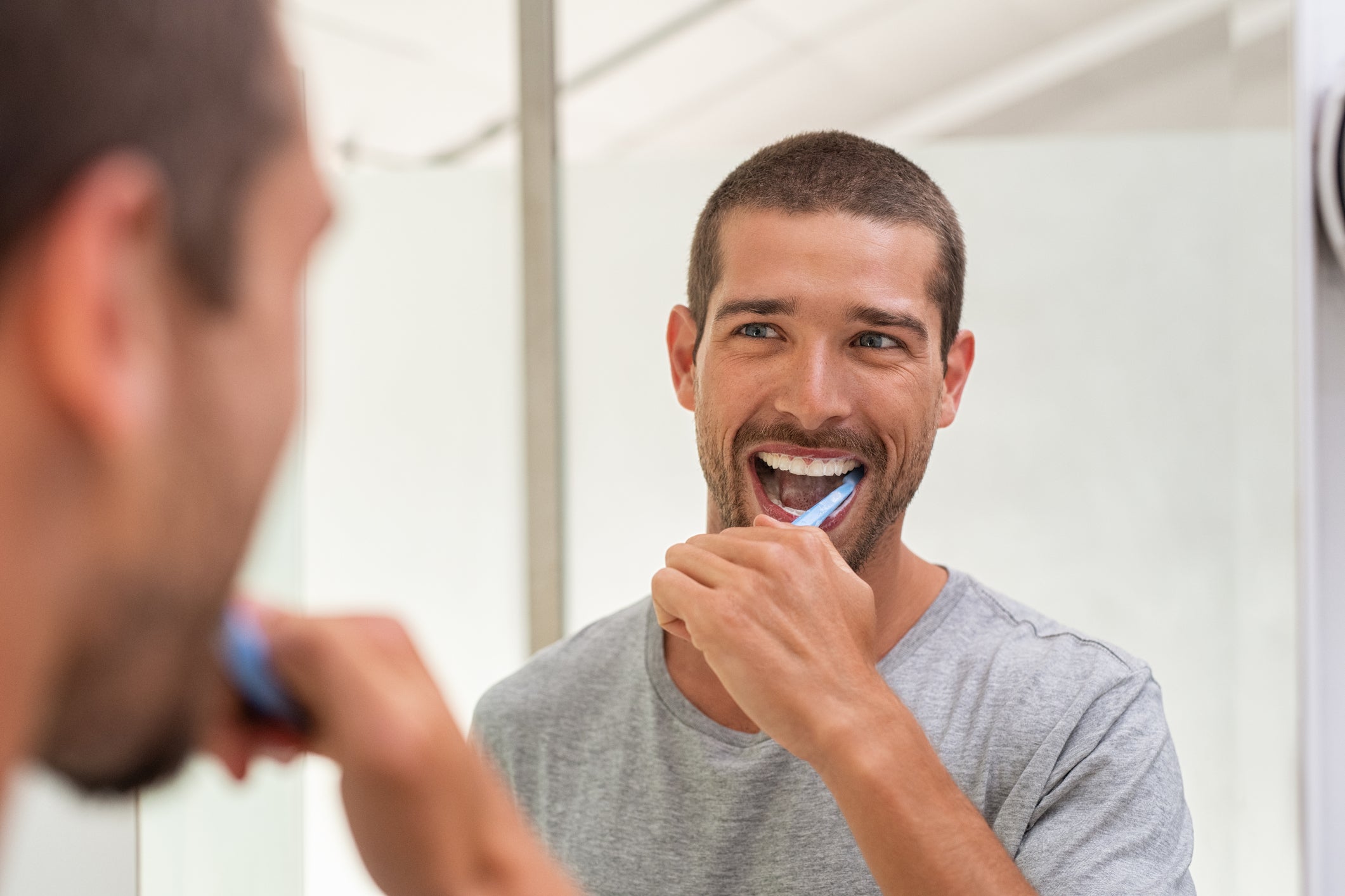
Do you experience pain after consuming hot or cold foods and beverages? The Academy of General Dentistry estimates that around 40 million people in the United States have some degree of tooth sensitivity. What causes sensitive teeth? And how can you manage it? Your dentist can offer some solutions, but there are also things you can do at home to help.
- Switch your toothpaste. Over-the-counter desensitizing toothpastes are made specifically to treat tooth sensitivity. These toothpastes have compounds that block the pain signals from your nerve endings to your brain and should decrease your sensitivity after a few uses.
- Brush more gently. Cleaning your teeth too vigorously can wear off your enamel, increasing sensitivity. Additionally, using a stiff-bristled brush can make tooth sensitivity worse by causing microscopic holes in your enamel and worsening gum recession. Use a soft bristled toothbrush and brush gently, holding the brush at a 45 degree angle to the tooth.
- Try some home remedies. A saltwater rinse can reduce inflammation, and hydrogen peroxide can act as an antiseptic and disinfectant to heal gums. Rinsing with honey and warm water can help your mouth heal, as honey is a natural antibacterial agent. Some people swear by oil pulling, swishing coconut oil around the mouth. Others use turmeric for pain and inflammation, massaging a paste made of turmeric into their gums. Cloves are a natural pain reliever with anti-inflammatory and germicidal properties. Using green tea as a mouthwash twice daily can strengthen teeth and reduce inflammation, and the capsaicin in hot peppers has analgesic properties when used as a topical gel or mouth rinse. Vanilla extract, applied to the gums with a cotton ball, can alleviate pain.
- Mind your diet. While certain foods can help sensitive teeth, others can make the problem worse. Acidic foods like soda and coffee, as well as high-sugar foods and processed carbs, can attack enamel. Even some healthy foods, like citrus fruits and flavored yogurt, can cause enamel erosion. Snack on tooth-strengthening foods like fiber-rich fruits and vegetables, cheese, milk, and plain yogurt. Drinking green or black tea is good for your teeth, and chewing sugarless gum can stimulate saliva production, helping to protect enamel. If you’re going to drink something acidic, use a straw so that less liquid makes contact with your teeth. Note: if you consume something bad for your enamel, don’t rush to brush. Swish with water and wait an hour before brushing, to avoid further damaging the enamel.
- Talk to your dentist. If sensitive teeth are troubling you, your dentist can find the cause. You may be grinding or clenching your teeth and need to wear a mouth guard or splint. Whitening treatments you’re receiving may be too harsh. A damaged tooth or gum disease can cause tooth sensitivity, so seeing your dentist can help address these issues. The dentist can also offer solutions like dental varnishes and sealants or even a root canal to fix the problem.
If you’re looking for the perfect dentist, choose the practice that was voted best dentist in NYC! At Park 56 Dental Group, we offer pediatric, prosthodontics, endodontics, oral surgery, Invisalign®, emergency, and sedation dentistry, all at the highest level of treatment. We serve the Midtown, Central Park, Upper East Side, Park Avenue, and all surrounding Manhattan and New York areas, with a patient-centered practice that has hours to fit your schedule. Schedule your complimentary consultation today by contacting us online or calling us at (212) 826-2322.
-
Why Your Teeth Chip Away
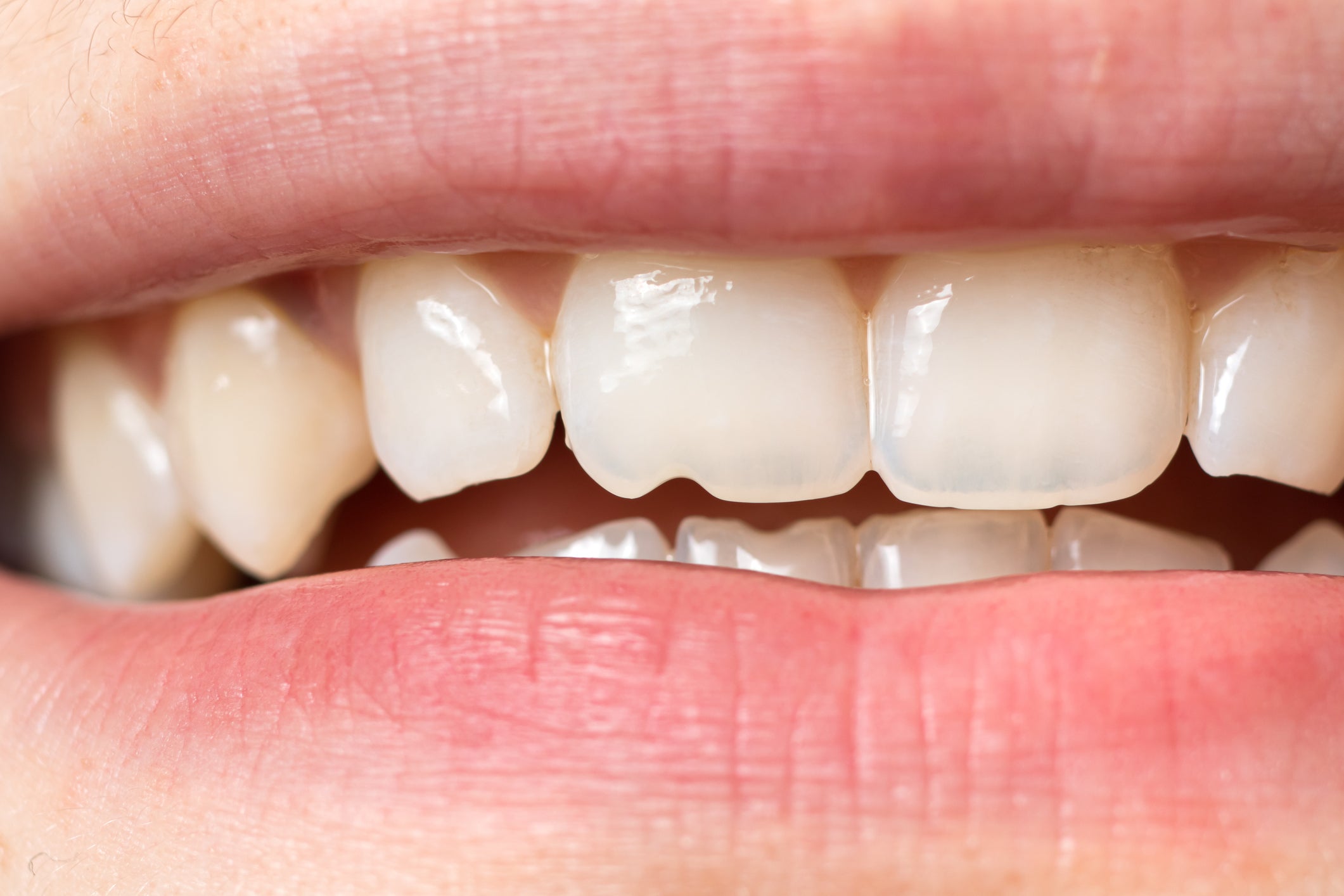
Enamel, the hard outer covering of your teeth, is the strongest material in the human body. So why is it that your teeth can chip away? Explore the causes of chipped teeth and what factors increase your risk.
Causes of Chipped Teeth
Enamel is tough, but it has limitations. Here are some common situations that may cause your teeth to chip:
- Biting down on hard candy, ice, or non-food substances
- Getting in a car accident
- Falling on your face or getting hit in the mouth
- Clenching your jaw during waking hours or grinding your teeth when you sleep
Risk Factors for Chipped Teeth
Strong, healthy teeth shouldn’t chip and crack. If your teeth are prone to this problem, learn the possible reasons why so you can take steps to prevent chipped teeth:
- Genetics: Some people have genetic traits that undermine the strength of their tooth enamel. Unfortunately, you have no control over this risk factor.
- Poor diet: If you don’t supply your teeth with the minerals they need, they won’t be as strong. The best foods for a healthy smile contain calcium, protein, folic acid, fiber, and vitamins A and D. Include more fruits, vegetables, nuts, and low-fat dairy in your diet to increase your intake of these nutrients.
- Tooth decay and enamel erosion: Too much sugar and acid in your diet can decay and erode your teeth. Large fillings also tend to weaken the natural tooth material around them. To lower your risk, eat less candy, soda, juice, citrus fruits, and starches.
- Misaligned bite: Crooked teeth aren’t just a cosmetic concern. If your teeth don’t align properly, something as simple as chewing could chip or crack a tooth. Fortunately, braces can help fix this problem.
- Acid reflux: Stomach acid is potent enough to damage tooth enamel. If you have acid reflux, heartburn, or an eating disorder that causes frequent vomiting, your teeth could weaken significantly and be more vulnerable to chipping.
- Contact sports: Do you play football, hockey, rugby, or other contact sports? If so, you’re more likely to suffer mouth injuries. Protect your teeth, lips, and gums by wearing a mouthguard.
- Bruxism: Teeth grinding, also known as bruxism, can wear down enamel. This makes you more prone to chipping a tooth during your day-to-day activities. Protect your teeth by wearing a custom-made mouthguard while you sleep.
- Age: Tooth enamel naturally wears down over the years, increasing your risk of chipping a tooth as you age. If you’re over age 50, talk to your dentist about any additional precautions you should take.
If you need help repairing a chipped tooth, turn to Park 56 Dental. We offer veneers and composite fillings to fix chipped teeth pain-free. We also fit patients with custom Under Armour® mouthguards to help prevent chipped teeth. You’ll love receiving treatment in our spa-like New York dentist office, so don’t hesitate to schedule an appointment today! Contact us at (212) 826-2322 to get started.
-
Why You Have White Spots on Your Teeth

When you smile at yourself in the mirror, you want pearly white teeth to smile back. If you notice white spots on your teeth, you may wonder if it’s a temporary cosmetic problem or an indicator of a more serious health issue. Explore the reasons why you may have white spots on your teeth and how a dentist can help you prevent or treat the problem.
What Causes White Spots on Teeth?
Several problems may cause white spots to form on your teeth. Some of the most common factors include:
- Too much fluoride: Ingesting too much fluoride leads to a condition called fluorosis. This harmless condition is usually seen in children whose teeth are still developing. To prevent this, give young children fluoride-free toothpaste and instruct older children not to swallow their toothpaste.
- Improperly formed enamel: A condition called hypoplasia causes poorly developed tooth enamel in children, resulting in white spots and an increased risk of tooth decay. Smoking during pregnancy is one reason this can happen.
- Certain medications: Amoxicillin and other medicines taken to treat infections can weaken tooth enamel enough to allow white spots to form. This most often affects children whose teeth are still developing.
- Loss of mineral content: In adults, an opaque, chalky white spot is often the first sign of a cavity. It indicates that the acidic plaque on your teeth has compromised the enamel, which is now starting to decay.
- Poor diet: Not consuming enough calcium and other minerals weakens your enamel. Then, eating too many sugary or acidic foods eats away at your weakened teeth, leading to white spots and eventually cavities. Try eating more fruits, vegetables, nuts, and low-fat dairy, while reducing your intake of candy, soda, juices, citrus fruits, and starches.
- Poor oral hygiene while wearing braces: It’s common for white spots to develop on your teeth while wearing braces. After all, dental hygiene is more difficult when your teeth are covered with brackets and wires, so thorough brushing and flossing are more important than ever. You may also want to consider Invisalign as a metal-free way to straighten your smile.
Treatment for White Spots on Teeth
When it comes to keeping your teeth healthy and beautiful, prevention is the best medicine. If white spots have already appeared on your teeth, a dentist may be able to remove them, depending on the cause and level of deterioration. The most effective treatments include:
- Enamel microabrasion
- Teeth whitening
- Dental veneers
- Topical fluoride
- Composite fillings
If you want help removing white spots from your teeth, Park 56 Dental is here for you. We offer cosmetic and restorative dentistry services to renew your confident smile. Our world-class care and passion for helping our patients have earned us the title of NYC’s best dentist! Find out for yourself what makes us different—call us at (212) 826-2322 or schedule an appointment online today. We have served the 10022 zip code area for over 20 years.
-
The Best and Worst Christmas Foods for Your Teeth

Have you decided what to serve at your upcoming Christmas party or holiday feast? If you’re trying to prepare a healthier menu, consider how different foods affect your oral health, not just your waistline. Here’s a look at which Christmas foods are on the nice list and which naughty foods you should avoid.
Christmas Foods on the Nice List
- Turkey and ham: As long as you choose lean cuts with minimal additives, protein is considered good for your teeth. Turkey, in particular, is packed with phosphorus for healthy teeth. Then, ham is high in potassium, which helps your teeth use calcium more effectively.
- Cheese: No holiday buffet is complete without a cheeseboard. The good news is cheese is packed with calcium and protein for healthy teeth. It also neutralizes any acidity in your mouth to reduce the risk of cavities.
- Nuts: Mixed nuts make a great holiday snack. Like cheese, they’re high in calcium and protein and low in sugar. Their crunchy texture is also a plus.
- Raw vegetables: Set out the veggie platter and enjoy every bite, knowing you’re eating one of the best Christmas foods for your teeth.
- Apples: All fresh fruit is good for you, but apples are especially beneficial for oral health. Finish your meal with a few apple slices to scrub your teeth and stimulate your gums.
Christmas Foods on the Naughty List
- Chocolate and other candy: Sweets are high in sugar, which becomes acid in your mouth. This means all candy is bad for your teeth, from hard candy canes and toffees to soft caramels and chocolates.
- Eggnog: While many consider eggnog a holiday staple, it’s chockfull of sugar. The thick consistency of this drink also encourages the sugar to stick to your teeth, creating acids that cause tooth decay.
- Dried fruit: Even though it contains the word “fruit,” you should beware of this holiday treat. Dried fruit is surprisingly high in sugar and stubbornly sticks to your teeth. Choose fresh fruit for a healthier mouth this Christmas.
- Popcorn: Popcorn hulls are a danger to your teeth, but any added caramel or chocolate drizzle only worsens the effect. Keep toothaches at bay by brushing and flossing after eating popcorn to remove any remaining debris.
- Sugar cookies: In addition to being sugary, cookies also contain starches that get stuck in your teeth and feed the bacteria in your mouth. If you get a craving for cookies, try chewing sugarless gum instead. Your teeth—and your waistline—will thank you.
Along with eating the best Christmas foods for your teeth, remember to continue your oral care routine this holiday season. This includes seeing the dentist regularly. If it’s been more than six months since your last visit, schedule an appointment with Park 56 Dental before the New Year. We’ve been voted the best dentist in New York, and with good reason. Contact us today at (212) 826-2322 to experience our spa-like dentist office for yourself.
-
Why You Should Take Advantage of Your Dental Insurance
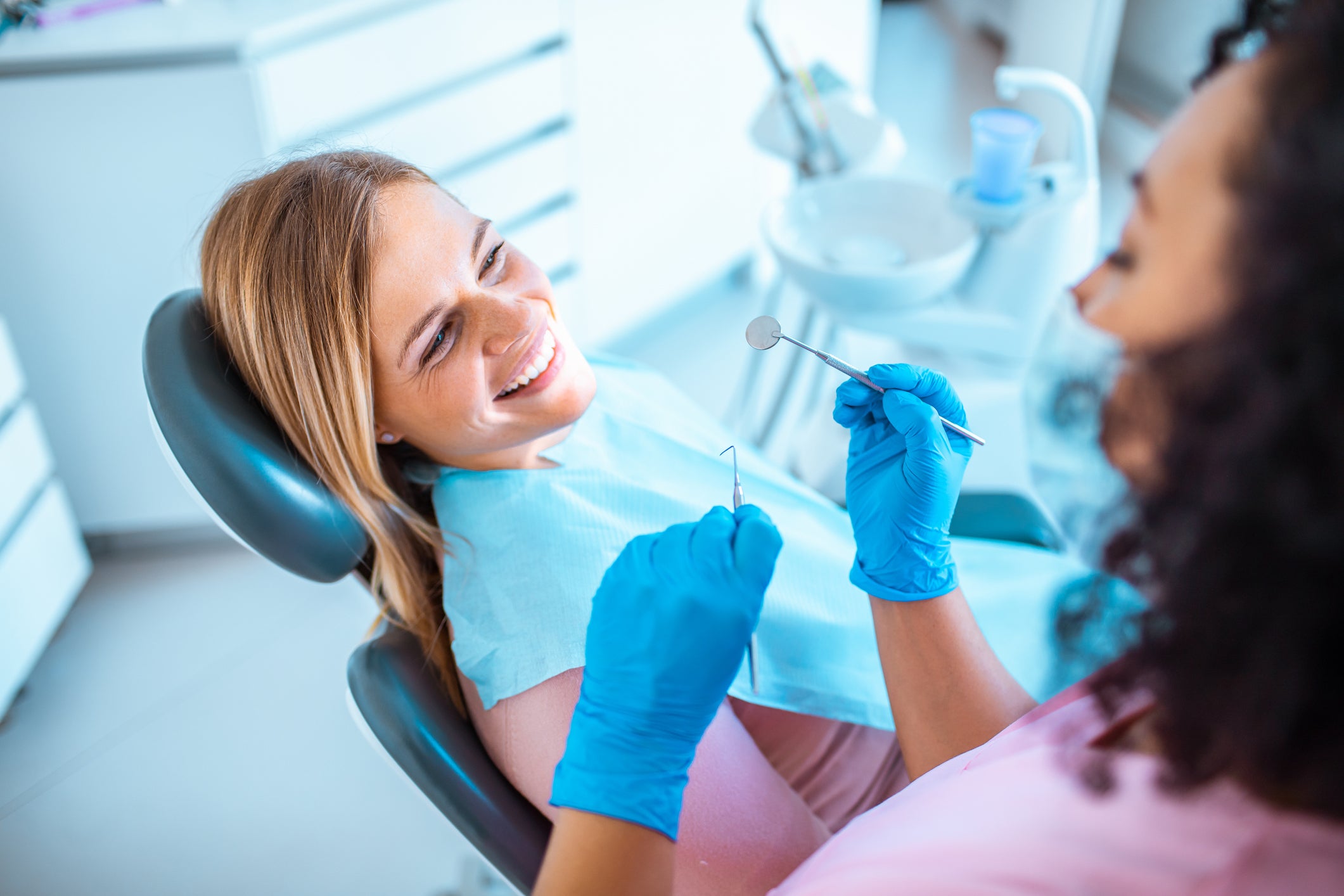
If you have dental insurance, your current plan will likely reset on January 1. Whether you pay for dental care through a benefits plan or use an FSA, don’t leave your hard-earned dental dollars on the table—schedule the dental services you need today!
Why Should You Use Your Dental Insurance?
- Coverage expires at the end of the year: Most dental plans cover two preventative visits per year and have an annual maximum. Coverage doesn’t roll over, so any unused benefits will go to waste.
- You’re already paying for it: Dental coverage through your employer deducts automatically from your paycheck. If you don’t visit the dentist, that money is simply wasted.
- Prevention is better than cure: Utilizing your dental insurance helps prevent oral health problems before they start. Even if you don’t need restorative or cosmetic services, you should still have your teeth cleaned and examined twice a year. Your plan should cover most or all of the cost, making it affordable to maintain a healthy smile.
How to Make the Most of Your Dental Benefits
- If your mouth is already in good shape, keep visiting the dentist every six months to keep it that way.
- If it’s been a while since your last appointment, meet with a dentist to determine your dental needs and what treatments are available. Getting everything done before the end of the year helps you make the most of your annual maximum.
- If you have periodontal disease or another chronic oral health problem, your dental benefits should make ongoing treatment more affordable.
How to Make the Most of Your Flexible Spending Account
A Flexible Spending Account (FSA) is a pre-tax way to fund qualifying medical expenses. You set it up through your employer and decide how much you want to contribute to the account each month. In general, FSA funds expire at the end of the year, so you’ll lose any money you haven’t spent once January 1 rolls around. Here’s how to make sure you use these funds to the fullest:
- Plan carefully during open enrollment to avoid overfunding your FSA.
- Talk to your dentist in the summer or fall about any procedures you might need soon. You may be able to use your FSA to pay any associated co-pays or co-insurance.
- Schedule any services you need before the end of the year to ensure your FSA dollars are used in time.
- Remember that FSAs typically cannot fund cosmetic procedures, such as teeth whitening, veneers, or cosmetic braces.
Park 56 Dental accepts insurance plans from Delta Premier, Delta PPO, MetLife, Guardian, Aetna, and Cigna. We also work with CareCredit and Chase Healthcare Advance for patients who don’t have insurance coverage. If you have any other questions regarding finances and dental care, feel free to ask. Then, contact us at (212) 826-2322 to schedule an appointment at our spa-like dentist office. We have served the 10022 zip code area of New York since 1997.
RECENT POSTS
categories
- Uncategorized
- Cosmetic Dentistry
- Veneers
- Healthier Teeth
- Teeth Whitening
- Dental Health
- Video
- Dental Emergencies
- Invisalign
- Dental Implants
- Root Canal
- Sedation Dentistry
- Infographic
- Dental Crowns and Bridges
- Dental Anxiety
- Gum Disease
- COVID-19
- Bad Breath
- New York Dentist
- Cut out sugar
- General Dentistry
- Oral Health
- Oral Cancer
- Dry Mouth
- Gum Health
- Toothache
- Dental Sealants
- Cavities



